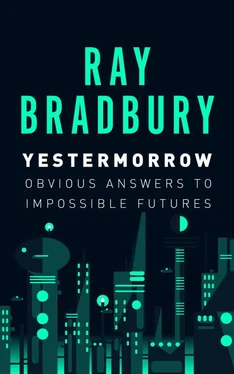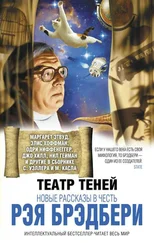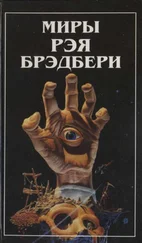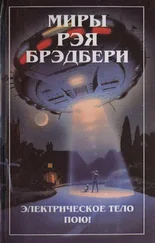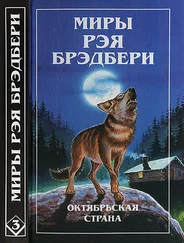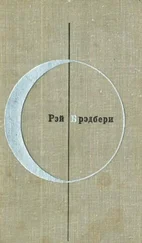It is, after all, the fiction of ideas, the fiction where philosophy can be tinkered with, torn apart, and put back together again; it is the fiction of sociology and psychology and history compounded and squared by time. It is the fiction where you may set up and knock down your own political and religious and moral states. It can be a high form of Swiss watchmaking. It can be poetry. It has resulted in some of the greatest writing in our past, from Plato and Lucian to Sir Thomas More and François Rabelais and on down through Jonathan Swift and Johannes Kepler to Poe and Edward Bellamy and George Orwell.
If you try to cram philosophical and sociological theories into the non-science fiction tale, you more often than not wind up with more crust than filling. It takes a very agile writer indeed to keep a book together under such conditions. But in the story of prediction, at its best, you are given leave to act out your problem in easily stage-managed symbols, in allegories, if you wish. It isn’t necessary to stop for long-winded explanations of philosophical or sociological climates. Simply by showing your real characters living and dying against your fresh background, the reader can guess an entire and different world, can feel it come alive through an osmotic literary process, which is often exceptionally subtle. Science fiction, then, does one the favor of making outsize images of problems so they can be seen and handled from all sides like those Easter balloons strung along the avenue by Macy’s each year.
Over and above everything, the writer in this field has a sense of being confronted by dozens of paths that move among the thousand mirrors of a carnival maze, seeing his society imaged and re-imaged and distorted by the light thrown back at him. Without moving anything but his typewriter, that immensely dependable Time Machine, the writer can take those paths and examine those billion images. Where are we going? Well, first let us see where we’ve been. And let us ask ourselves what we are at this very hour. Fortified with this knowledge, nebulous at most, the writer’s imagination selects the first path.
Would you like to know how a Communist government might run the United States? A fascist clique? A government of matriarchs? Novels exist covering all these subjects. What if all parents gave over the education of their children entirely to machines? Or if a law was passed forbidding pedestrians in the year 2001? Why travel to the Moon or Mars if we only continue our wars there with Russia or China or Africa? Why build rockets at all? For fun? For adventure? Or is this the same process that sends the salmons back upstream year after year to spawn and die—a subliminal urge in mankind to spread, in self-preservation, to the stars? Are we then secretly fearful that one day the sun might freeze and the earth grow cold or the sun explode in a terrific thermal cataclysm and burn down our house of cards? And is all this space-travel talk nothing more than the human race itself seeing to it that it survives when survival means getting off a single, unstable planet and seeding space to its farthest boundaries, where no natural catastrophe, no congealing of sun or passing comet, can destroy man? Is self-preservation, then, our prime mover, and all our speechifying about adventure and fun and a New West in the Sky so much rationalization?
I know I cannot answer the above questions. But I also know I am endlessly fascinated with these questions, minor as they may seem to some, or pompous as they may seem to others. And many, including myself, are having a go at answering them, in the science fiction field. Here are a few more:
How do you go about converting a group of non-materialist, utterly alien Martians to the Methodist conviction? If you find a race of dogs or cows on Mars with I.Q.’s verging on 190, capable of carrying on highly enlightened and logical conversations on social and metaphysical topics, where does this put the Christian faith relative to its dictum that dogs and cows do not have souls of transferable value? If these dogs and cows are morally aware and responsible for their actions , that is supposedly the test one must pass in order to be credited with a soul. Well, then, one is tempted to ask the Christian religion to point out that exact moment in the history of dogdom and cowdom on Mars when they stopped being brutes without souls and became equal and perhaps superior to man, thus inheriting the soul as a blessed gift.
I ask these questions both in good humor and in all seriousness. I ask them simply because some time soon they must be answered. The day of the rocket is not so distant that we can delay longer in answering some of them. It will be very embarrassing if we find on far worlds not only that the Adam and Eve legend is the myth we suspected it to be but that Mr. Darwin, too, has been thrown bodily out the window by the things we find on that far world. Science and religion might both run in circles, like broken toys, momentarily confronted with such factual heresy.
Not that we won’t be able to adjust to any problems met at home or abroad in the solar system in 1999. We will adjust. But I also think our adjustment will derive in part from our practicality in both entertaining ourselves with science fiction and looking to our answers now, while still it is afternoon. These problems are human problems, which all too soon will no longer be science-fictional but part of a past history our children will read. I consider none of the above questions improbable or impossible. I consider them very probable and possible indeed.
Consider the similarity of two books—Koestler’s Darkness at Noon , laid in our recent past, and George Orwell’s 1984, set in a future now behind us. Once we were poised between the two, between a dreadful reality and an unformed terror, trying to make such decisions as would avoid the tyranny of the very far right and the tyranny of the very far left; the two of which can often be seen coalescing into a tyranny pure and simple, with no qualifying adjective in front of it at all.
Space, which is very large indeed, is not the only huge thing that stands before man. Bigness in all its forms towers above us—bigness in religion, bigness in the fields of communication, labor, corporative enterprise, and government. No sooner has the private citizen warded off the millstone wheel of one Juggernaut than another lumbers on stage. Compared to other ages, in which man hid from a single Giant here or a Titan there, we are living, it cannot be denied, in a year when every one of us must stand ready, alone, axe in hand, by the Beanstalk.
Science fiction, it has been suggested, could possibly be the axe, which on occasion might hew as much as half an inch of fibrous material from certain Beanstalks. I do not know whether it has ever killed, maimed, or even bruised a Giant. I do not know whether it can be a sling to send the pebble against the brow of Goliath for the millions of Davids alive and put-upon today. I would not dare to say that it is probably the literature of warning or that it might be the dream that can help ward off the nightmare. Too many have claimed too much for science fiction already. And there is no charting agency available to show how much literature goes into the minds and, years later, works down and comes out through the hands of acting individuals.
I know only that there isn’t a time, when I’ve had a really good night’s sleep and am clear-headed, that I haven’t thought of science fiction and been excited and concerned with its function, minor if you wish, both as fresh entertainment and as morality cloaked in symbol and allegory.
Certainly I have often wished that a new name might be applied to this field, since the old name has grown shopworn in the service of bug-eyed monsters and half-naked space women. But there seems to be no way to avoid that, and new writers coming into the field will have to carry the burden of the old label until someone provides a better one, in this land where everything must absolutely have a label.
Читать дальше
